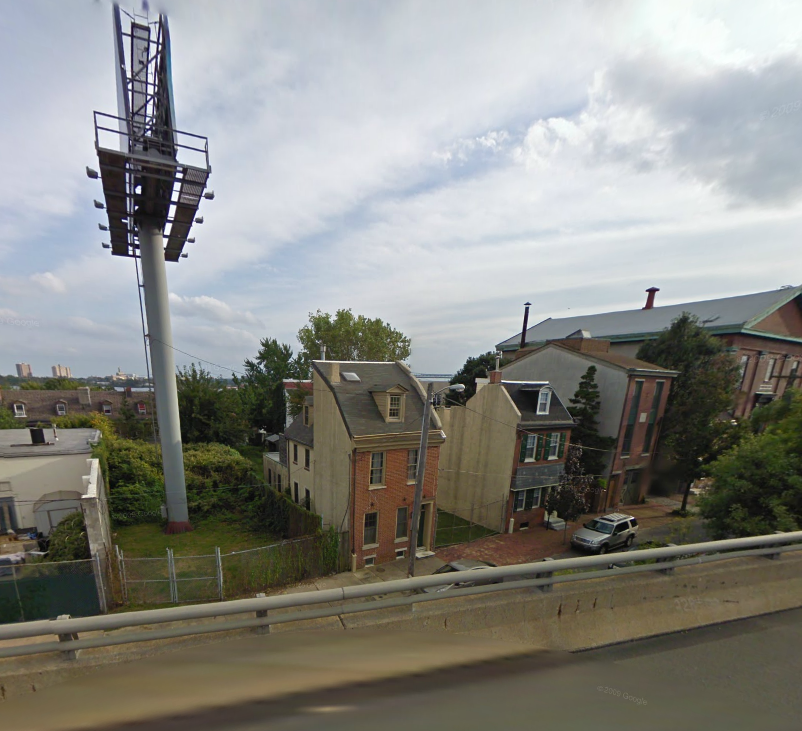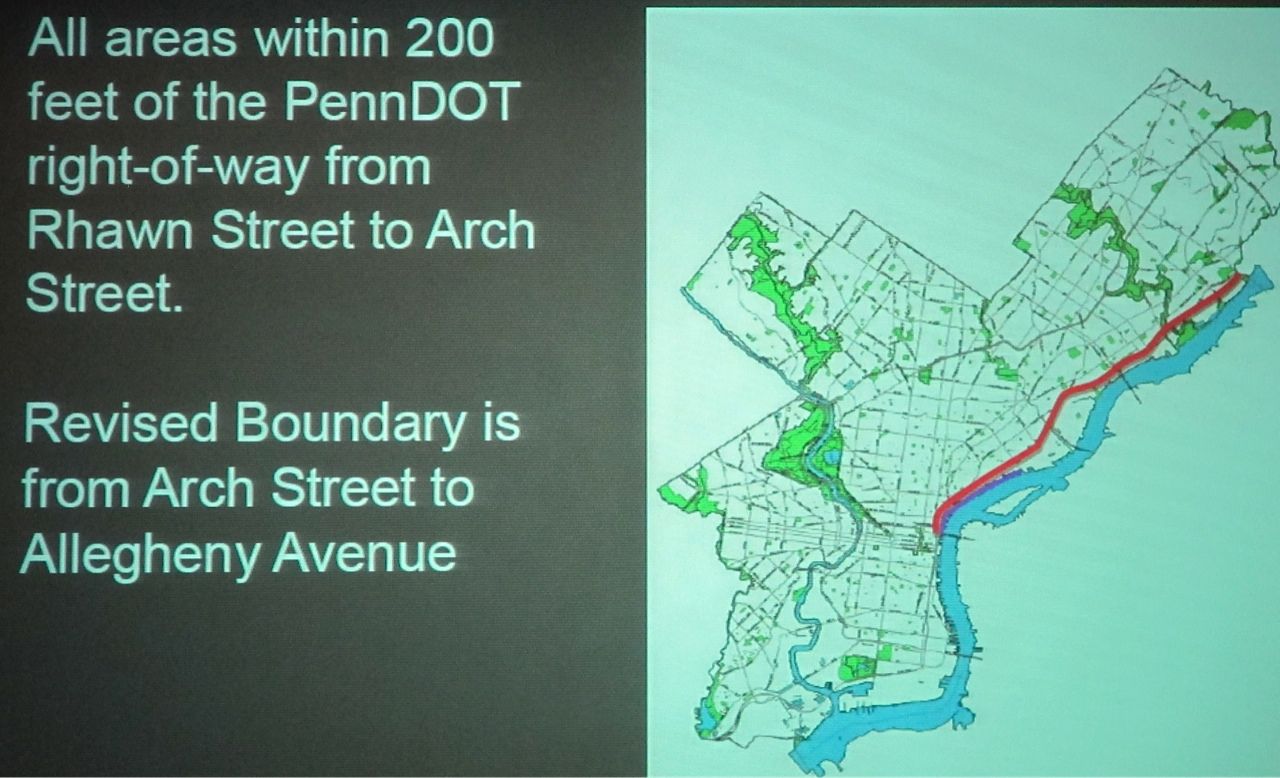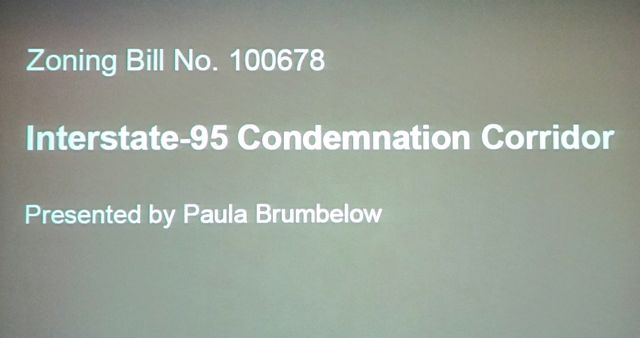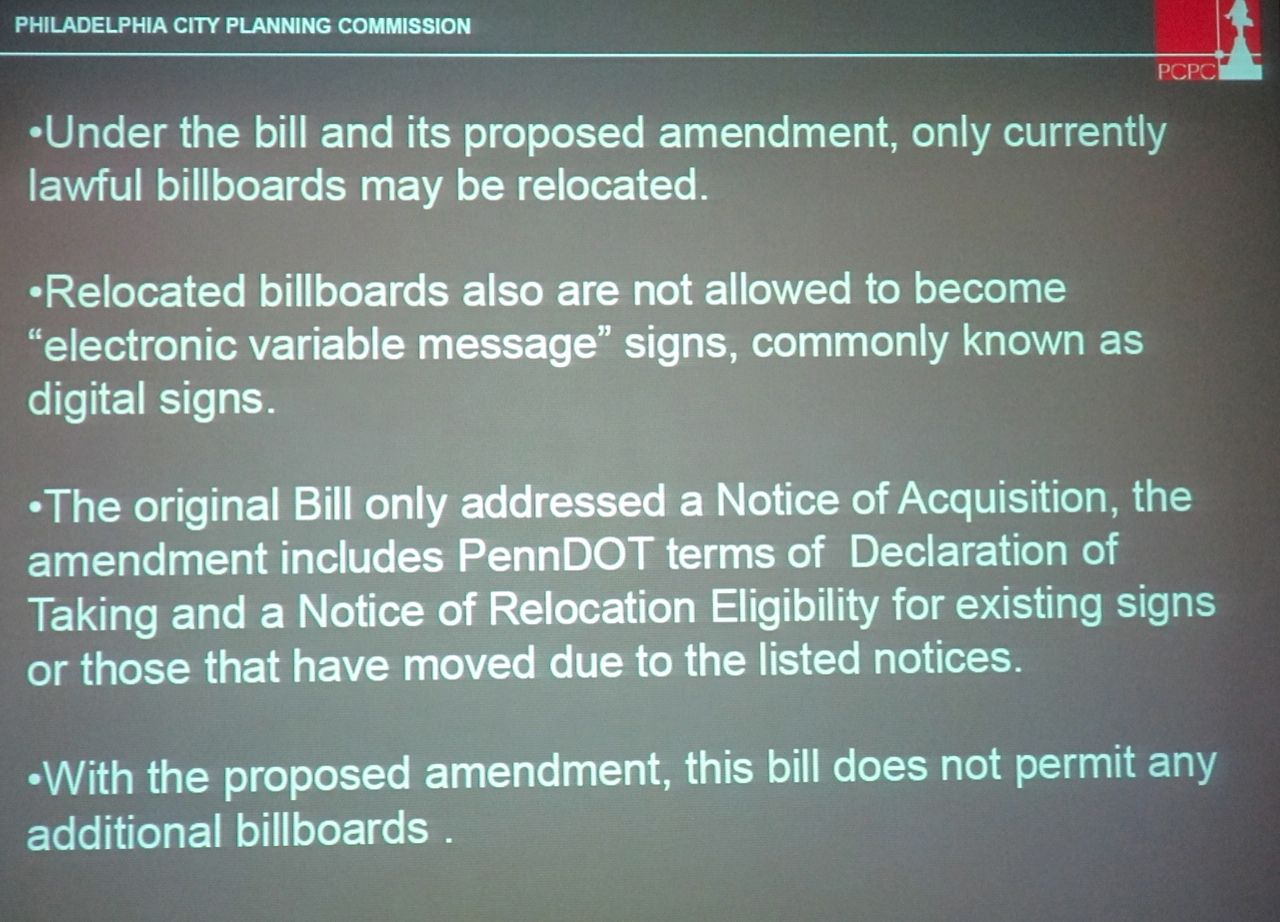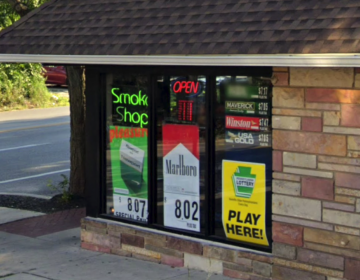Planning Commission to City Council: Don’t allow condemned I-95 billboards to relocate near houses
Planning commissioners say they don’t oppose a bill that would allow owners of billboards condemned to make way for the expansion of I-95 to relocate them without going through the usual permitting process. But they have a condition.
As written, Zoning Bill 100678 would allow any billboard that is currently closer to a home than code requires to retain that distance. So if a sign is now 100 feet from a residence, its new location is legal as long as the billboard is not closer than 100 feet from any residential structure.
Commissioners said Tuesday that they want City Council to amend the bill so that any relocated billboard must meet the code requirement to be no closer than 300 feet from a residentially zoned property, regardless of how close the billboard’s original location was.
Council is expected to vote on the legislation, which has passed out of Rules Committee, on Thursday.
Proponents of the bill, sponsored by First District Councilman Frank DiCicco and Councilwoman-at-Large Blondell Reynolds Brown, say it would help save jobs and tax revenue by ensuring that billboards and businesses that must be removed for the highway expansion are resurrected. Opponents say the city is losing an opportunity to eliminate some billboards, which they see as blight.
Anti-blight organization SCRUB and waterfront civic organizations have opposed the bill. In response, Sixth-district Councilwoman Joan Krajewski introduced an amendment that has exempted her district from the bill. Krajewski was also approached by outdoor advertising industry representatives to introduce the bill. She declined. Read more about the bill’s history here and here.
While Krajewski’s district has most of the I-95 corridor in it – the amended version of the bill applies only to the area between Vine Street and the south side of Allegheny Avenue, while it originally stretched to Rhawn Street – industry representatives at last week’s Rules Committee hearing said the bulk of the billboards to be moved are still covered by the bill.
Planner Paula Brumbelow said that there are 105 billboards along I-95 in Philadelphia, and that while some design work is still occurring, PennDOT estimates between 27 and 32 of them will need to go away for highway expansion. The removal of Krajewski’s district brings the number of to-be-moved billboards in the I-95 condemnation corridor to 18.
Another amendment to the bill submitted by DiCicco has tightened the rules that must be followed to relocate an outdoor advertising sign – a modification that was guided by the city planning, streets and legal departments, which all had problems with the bill in its original form.
What hasn’t changed: A billboard can be relocated within 350 feet of its former location and 200 feet from either side of the expanded highway.
But the bill now specifies that no billboard can be moved into a residential zone unless it is already in a residential zone, and that it can be no closer to a residence than it is right now. This is the part the commission wants council to tighten further. As it stands, it would prevent another five billboards from automatically relocating, bringing the number to 13.
DiCicco’s amendment also states that no standard, one-dimensional billboard can be replaced with a digital billboard. And it requires the owner to show a permit stating that the existing billboard is legal. It won’t be enough, Brumbelow said, just to say that the billboard has been there forever, and it was permitted way back when.
Before these changes were made, planners and staff from other city departments worried that the bill was too broad, overrode existing zoning rules, and could jeopardize federal funding. The changes were enough to alleviate these concerns, said Gary Jastrzab, executive director of the planning commission.
But planning staffers still don’t think the bill is necessary. Without the bill, owners would have to go through the development process for the proposed new location. Some might get an over-the-counter permit from L&I, some might have to seek relief from the Zoning Board of Adjustment. Should the bill pass, this is the process that owners of billboards in Krajewski’s district will still have to follow. The feeling that the bill is unnecessary is why the commission voted to tell council it did not oppose the legislation. Usually, the commission either supports a proposal or oppose it. Because of the tight timetable for city council’s end-of-summer calendar, the Rules Committee voted on this bill last week, before the planning commission voted. Jastrzab relayed planning staff’s recommendation at that meeing.
SCRUB founder Mary Tracy told the planning commission that the new version was “much improved.” But she told planners she was still concerned about some billboards relocating close to a residence without needing to go through any sort of permitting process. She asked Commissioners to require that anyone living close to a proposed relocation receive a notice, so that they at least could make a decision about whether to take the issue to court.
After a discussion, Vice Chairman Joe Syrnick proposed that the commission tell council they do not oppose the bill, provided it is amended so that any new billboard would have to meet existing requirements of staying 300 feet away from a residentially zoned property.
“Thank you,” Tracy said.
Should council amend the bill as suggested, it won’t change things much for the billboard companies. There is just one billboard in Northern Liberties that is currently less than 300 feet from a residentially zoned property and would not be able to relocate as a result of the commission’s proposed change, Brumbelow said.
Tracy said the change is important beyond Northern Liberties because of precedence. She also said that there could be other potential incidences that have been overlooked.
Any outdoor advertiser whose billboard is condemned will receive compensation from PennDOT, but this covers only the value of the steel structure of the billboard and does not consider the income the billboard generates. This is one big reason why the companies want the legislation to pass.
Reach the reporter at kgates@planphilly.com
WHYY is your source for fact-based, in-depth journalism and information. As a nonprofit organization, we rely on financial support from readers like you. Please give today.



